
The Business of Fashion
Agenda-setting intelligence, analysis and advice for the global fashion community.

Agenda-setting intelligence, analysis and advice for the global fashion community.
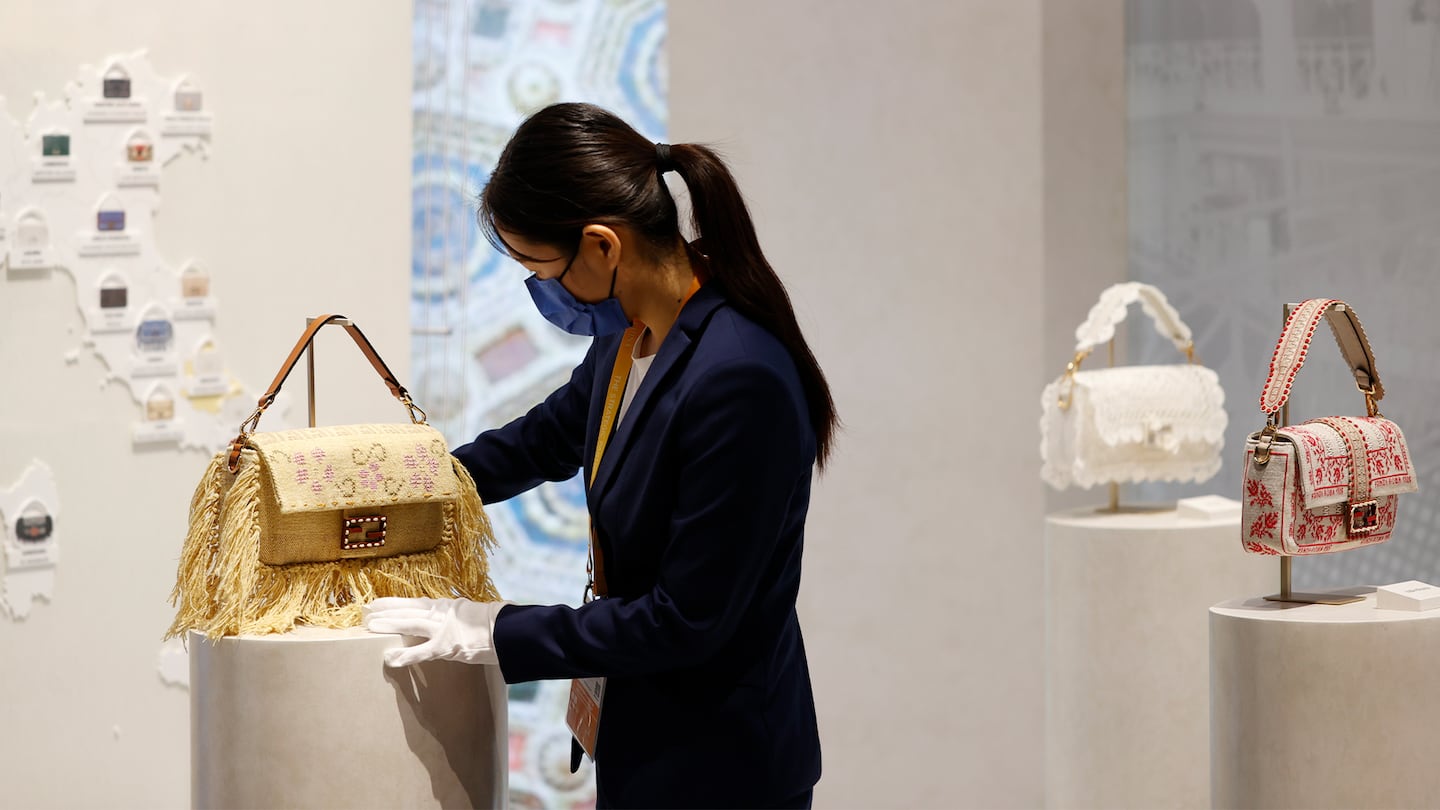
As more countries raise the drawbridge in response to the Omicron variant of Covid-19, Chinese political leaders are said to be feeling vindicated about their strict zero-Covid policies which aim to eliminate community transmission and keep new variants of the virus out of the country.
One pillar of the strategy has been a refusal to relax border restrictions at key junctures throughout this year as other governments around the world did the opposite. This has effectively closed China off from most international travel since March 2020. Though there are some pockets of frustration, the Chinese public appears to be broadly supportive of the policy and the government is not planning to change tack anytime soon.
“I think the overall view is that it’s been very successful. The zero-Covid policy approach is unlikely to change at all, certainly [not] before the Winter Olympics [in February in Beijing , which will go ahead without international spectators]. Especially with new variants emerging around the world like Omicron, the message is quite clear that the current approach will continue for quite some time,” said James Roy, a director at luxury consulting firm Agility Research in Shanghai.
Indeed, a widely circulated research report from Peking University, first published last week in China CDC Weekly by the Chinese Centre for Disease Control and Prevention, should eliminate any doubts about the possible resumption of international travel. Authors of the report predict that if China were to open up to the extent that the US has, for example, there would be a “real possibility of a colossal outbreak which would almost certainly induce an unaffordable burden on the medical system.”
ADVERTISEMENT
Even after the Olympics, China is unlikely to take any risks with re-opening prior to the 20th Party Congress in the second half of 2022. At what will be a carefully choreographed event, President Xi Jinping will almost certainly be given the nod to serve a third term as leader, an unprecedented event in post-Mao era China. The Chinese Community Party will not want a major Covid-19 outbreak to mar what it views as an historic occasion.
I think the overall view is that it’s been very successful. The zero-Covid policy approach is unlikely to change at all.
For the luxury industry, all this means Chinese spend will mostly remain trapped in the mainland, probably for the duration of 2022.
This isn’t necessarily bad news. After all, the period in which China’s borders have so far been closed coincided with a boom in local luxury sales. Devoid of other pleasures, such as holidays abroad, some Chinese consumers allocated extra budget to luxury goods spending.
The repatriation of luxury to China has also compelled brands to shift more energy and resources to the mainland. Across the sector, brands have restructured and expanded local store networks, increased their visibility on social media through celebrity endorsements, invested in grand shows and exhibitions and tapped Chinese marketing calendar opportunities with increasingly sophisticated capsule collections and campaigns.
The results have been extraordinary. According to The State of Fashion 2022, a report co-published by The Business of Fashion and McKinsey & Company last week, China’s domestic luxury market will reach sales 70 to 90 percent above 2019 levels by the end of this year, with a further 20 percent year-on-year growth tipped for 2022 reaching 90 to 110 percent above 2019 levels. That amounts to a doubling of domestic luxury sales in just three years during the height of the pandemic.
But the domestic boom has come at a cost to luxury brands. A significant proportion of these gains has and will continue to be at the expense of brands’ performance in Europe and other international markets where many Chinese customers shopped before the onset of Covid-19. The report estimates that 65 percent of Chinese consumers’ luxury spend this year will have come from within mainland China, a complete inversion since 2019, when 65 percent of Chinese spend happened outside its borders.
Overall, the share of luxury goods purchased by Chinese is expected to rise in the years ahead with mainland shoppers continuing to drive the global market. This doesn’t mean, however, that brands don’t need to re-examine their playbook to optimise their approach for next year.
Economic Woes, Resilient Consumers
ADVERTISEMENT
Even as the domestic luxury industry has boomed, economic headwinds have also loomed more ominously than even on China’s horizon this year.
China’s GDP grew at its slowest pace in a year last quarter, expanding just 4.9 percent from a year earlier and only 0.2 percent quarter-on-quarter. It was one of the weakest quarters since China started releasing such records in 2011 and slow growth is expected to continue into next year. Media reports last week indicated that government advisors will recommend Chinese authorities set 2022′s GDP forecast at 5 to 5.5 percent (2021′s target was “above 6 percent”).
This slowdown, combined with a rise in producer price inflation this year has led to concerns that China may sooner rather than later find its economy in stagflation, a scenario of both slowing or stagnating economic growth and rising inflation.
The country’s property sector, a key economic growth driver, has also slowed sharply in recent months, with new home prices falling and a 24 percent year-on-year decline in residential sales in October. Business sentiment has been shaken by tightening government regulations and a growing liquidity crisis that has gripped the country’s largest and most indebted real estate developers — most notably Evergrande — with the downturn expected to continue into the first half of 2022, according to a Reuters poll released last week.
There is also President Xi Jinping’s “common prosperity” policy to consider, an announcement earlier this year which ostensibly aims to restrain “unreasonable incomes” and expand the country’s middle class. Though some luxury analysts are concerned that new policy interventions to curb income inequality could be implemented which may hit the luxury market (an October 2021 China International Capital Corp report predicted, for example, that China would expand its consumption tax to cover more luxury consumer goods), other industry leaders suggest that any impact on the bottom line is likely to be muted for most luxury brands.
They are not backing off the drive to have consumption growth [and] they have not signalled anything against [luxury] products, but they wanted to calm down the vulgar displays of the disparities of wealth.
Among them are executives at some of the world’s largest luxury conglomerates.
In LVMH’s recent third quarter earnings call, chief financial officer Jean-Jacques Guiony acknowledged that the group’s sales rise of 26 percent year-on-year in Asia (excluding Japan) would have been higher if not for “Covid containment measures… undertaken here and there,” but he also said there seemed to be little change in sentiment among China’s luxury consumers following the beginning of the common prosperity push in August.
Richemont chairman Johann Rupert seemed to agree that the government’s policy would have little impact on the luxury industry overall. “They are not backing off the drive to have consumption growth [and] they have not signalled anything against [luxury] products, but they wanted to calm down the vulgar displays of the disparities of wealth,” he said in a call with analysts following the release of his group’s first half results in November, adding that the policy was well-received in China.
ADVERTISEMENT
A recent survey by Agility Research of 1,300 affluent consumers in China found that there is broad support for the push for common prosperity. It also found that while China’s affluent consumers remain quite optimistic about the future, the rise in optimism about the future has “levelled off somewhat” James Roy said.
This said, Roy adds that 55 percent of those surveyed with investible wealth of above $1 million dollars are expecting to increase their luxury spend next year. “There is a lot of emphasis among consumers in our interviews on items that will keep their value over time.”
This is no doubt welcome news for luxury’s legacy players, though they also have an increasingly complicated market environment to navigate in China.
High Risk, High Return
An ongoing crackdown on China’s tech industry and social media ecosystem which underpins the booming “fan economy” has meant an increasing number of celebrities and high-profile KOLs (or key opinion leaders, as influencers are known in China) are being scrutinised by the authorities for everything from their tax records to their moral influence on young people.
This has occurred at exactly the same time that luxury brands are leaning more heavily on high-profile celebrity ambassadors to convert online traffic into sales and acquire new customers in an increasingly crowded marketplace by localising and differentiating their ad campaigns. In 2022, the environment is likely to become even more fraught for brands navigating this increasingly volatile space.
The environment for putting on big events in China remains uncertain at best.
Also under threat are the major marketing events luxury brands have been bringing to China to create brand buzz and engage with local consumers in more intimate ways since the onset of the pandemic.
Thanks in part to the government’s zero-Covid approach, the environment for putting on big events in China remains uncertain at best, with one insider at a luxury brand telling BoF it will “for sure” be even more difficult to hold events in China in 2022.
When BoF reached out to several brands including Louis Vuitton, Dior and Prada about whether this would lead them to pull back on China-based shows, exhibitions and events, most said they still intended to plan events in 2022, though they were doing so with caution, waiting to see how the situation on the ground develops.
Rather than halting them altogether, it’s more likely brands will hold smaller events more frequently, which is arguably more advantageous for providing a non-stop drip feed of content for social media. Leveraging livestreamed events to show exclusive products to top customers only, or hosting intimate experiences with celebrity ambassadors digitally will likely become even more common.
Domestic Travel and the Hainan Question
One of the few bright spots for the travel retail industry over the pandemic period was Hainan. Duty free sales in the province of around $5 billion 2020 and $5.6 billion in the first nine months of 2021 were recorded, according to Haikou city customs data. This momentum has prompted international fashion and beauty brands to invest heavily in the tropical Chinese island destination.
Despite the likelihood of further disruptions to domestic travel throughout 2022, Martin Moodie, chairman of specialist travel retail business media, The Moodie Davitt Report, believes luxury sales in the province will continue to grow.
After all, travel disruptions were also experienced in 2021, but that didn’t stop record-breaking sales — though Haikou city customs have acknowledged that sales this year would have been higher without them.
“[We] expect 2022 to see all [travel retail] Hainan sales records smashed,” Moodie said, adding that there is “no way I see the Hainan locomotive slowing” in the year ahead.
For luxury brands, leery of price differentials within the China market and the prospect of a rise in daigou grey market activity in Hainan, balancing the island’s opportunity with its potential drawbacks remains complicated.
A recent report from Reuters even claimed that Louis Vuitton, a long time holdout, was considering opening its first Chinese duty free location in Hainan. The brand refuted that claim, saying in a statement that it isn’t “not considering any options within the licensed duty-free market”, though, it admitted it is “exploring opportunities in Hainan.”
According to a separate report in The South China Morning Post, Hermès is also “eyeing new stores in the province” a claim the brand did not respond to when BoF reached out for comment (Hermès already operates a duty free store in Hainan for watches and beauty).
Though some continue to hesitate, most brands are just going to have to find a way to embrace Hainan, Moodie says, considering the Chinese government’s 14th Five Year Plan which includes a goal to increase tourism numbers to the island to 110 million by 2025 (compared with 64.6 million in 2020). Luxury retail is a pillar of the strategy to reach that goal.
“You’re going to see the biggest luxury brands make their debut in due course,” he said. “It’s a matter of when, not if.”
时尚与美容
FASHION & BEAUTY
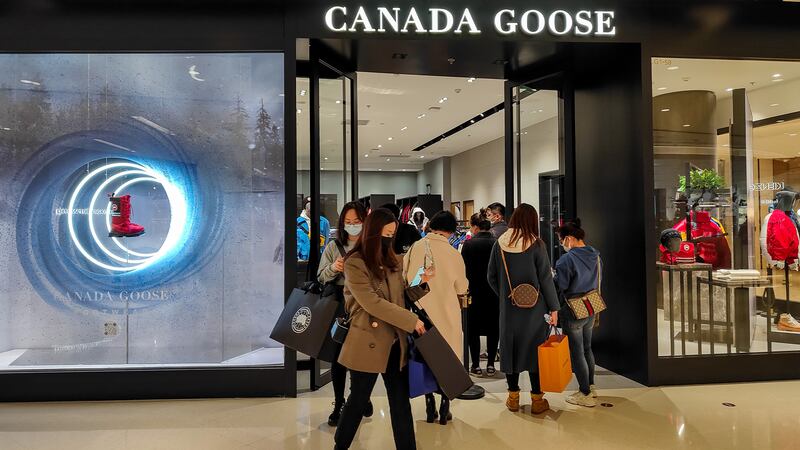
Canada Goose Chastised for China Return Policies
Canadian outerwear brand Canada Goose has come under fire in China following a dispute over its return policies, with Shanghai’s consumer watchdog asking for explanations and complaints about the brand going viral online. This latest controversy comes just three months after Canada Goose was fined for false advertising amid a tightening regulatory environment that has seen authorities focus more on protecting consumers and their rights. (Reuters)
Bogner, Bosideng Sign Joint Venture
The German winterwear specialist and Chinese apparel giant have signed a joint venture that will see the former establish a digital presence and open about 80 stores over the next five years. The deal was finalised ahead of the Winter Olympics, which are slated to run from Feb. 4 to 20. Bogner is a longtime outfitter of Germany’s Olympians and is expected to sponsor the team once again in Beijing. (Press Release)
科技与创新
TECH & INNOVATION
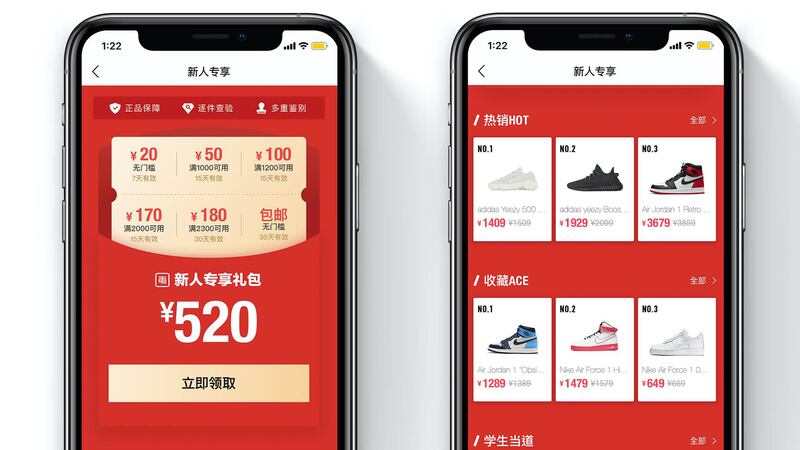
Chinese Streetwear Platform Poizon To Invest $50 Million in Content Pivot
The Shanghai-based streetwear platform, known locally as Dewu, announced its intention to invest 320 million yuan ($50.23 million) in promoting new content creators, influencers and MCN agencies (multi-channel networks that represent stables of influencers). Poizon’s founder and chief executive Yang Bing said the move is geared towards the long-term development of the platform. Though it started life primarily as a sneaker resale and authentication platform for Chinese hypebeasts, it has more recently shifted towards content creation in order to attract a broader audience. (BoF)
Big Changes in Alibaba’s C-Suite Amid Challenging Environment
Toby Xu will take over from Maggie Wu as Alibaba’s chief financial offer from April 1, the company said Sunday. Separately, the company said in a blog post that it is creating two digital commerce teams, one for international markets, led by Jiang Fan, and another for the domestic market, to be headed up by Trudy Dai. Alibaba was levied a record antitrust fine earlier this year, and has been forced to navigate increased regulatory scrutiny while fending off slowing sales growth and increased competition that forced a cut in its revenue outlook last month. (Bloomberg)
消费与零售
CONSUMER & RETAIL
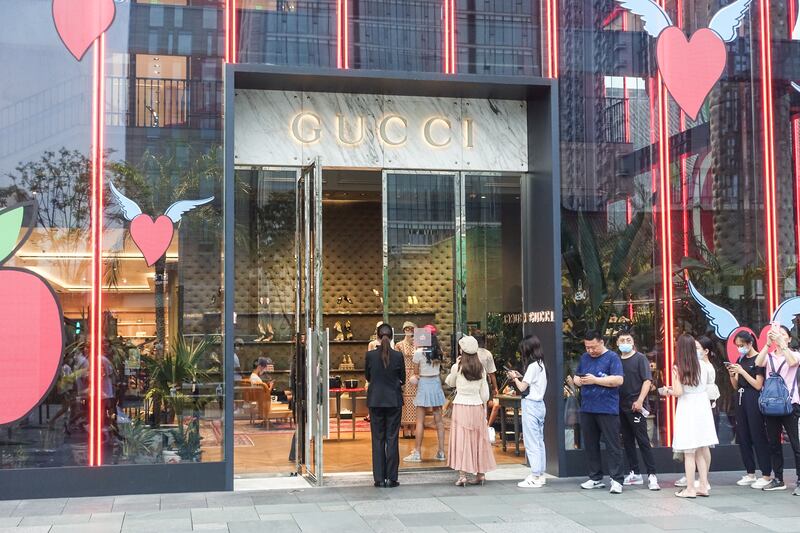
First-Time Luxury Consumers Want Edgier Luxury Brands
According to a new research report from consulting firm Oliver Wyman, a surge in first-time luxury consumers means that cohort will be responsible for 88 percent of China’s luxury fashion market growth in 2021. A growing number of younger consumers in the country are choosing clothes and brands that set them apart from their peers. Unlike previous generations, purchase decisions are motivated more by making a statement than any signalling of status. This shift opens doors in the market for lesser-known and edgier brands that provide young consumers a point of difference from the big luxury labels. (BoF)
政治,经济与社会
POLITICS, ECONOMY, SOCIETY
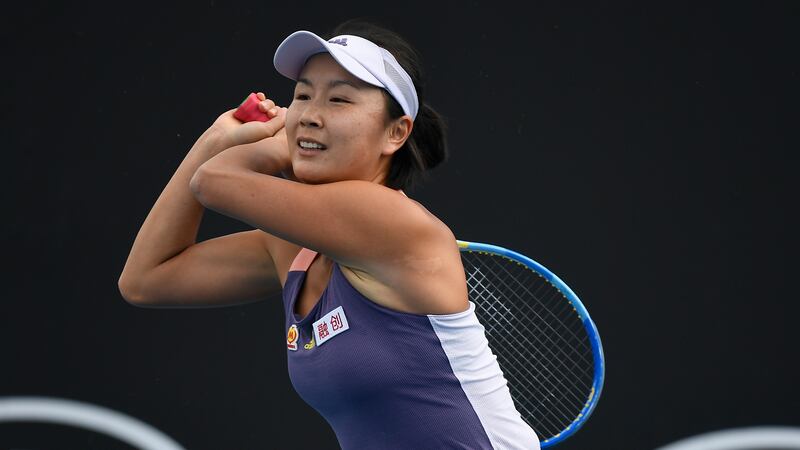
WTA Cancels China Tournaments Over Concern for Peng Shuai
The tennis association called for the Chinese government to allow tennis pro Peng Shuai to travel and speak freely, and for an investigation to be launched into allegations she made against former Chinese vice premier, Zhang Gaoli, of sexual assault. The WTA’s stance marks it as the first international sporting body to push back on China in this way and comes as heightened calls for a boycott of Beijing’s Winter Olympics put countries, sporting organisations and sponsoring brands in a bind. (The New York Times)
US Expected To Confirm Diplomatic Boycott of Beijing Olympics
Following last month’s revelation that US President Joe Biden was considering a diplomatic boycott of the 2022 Beijing Winter Olympics in protest of China’s alleged human rights abuses, sources recently told CNN that he has indeed decided to do so and that the announcement is likely to be made this week. It is believed that no US government officials will attend the games but that US athletes will not be prevented from competing. (CNN)
Real Estate Giant Evergrande Edges Closer To Default Disaster
The struggling property developer saw its shares drop to an 11-year low on Monday after a statement over the weekend from Evergrande indicated there was “no guarantee” it could meet its obligations and could be forced into a full-blown restructuring. Creditors are demanding immediate payment of $260 million, the statement said, and Monday marked the deadline for an $82.5 million payment that was previously deferred from November. (The Guardian)
China Decoded wants to hear from you. Send tips, suggestions, complaints and compliments to our Shanghai-based Asia Correspondent casey.hall@businessoffashion.com.
With consumers tightening their belts in China, the battle between global fast fashion brands and local high street giants has intensified.
Investors are bracing for a steep slowdown in luxury sales when luxury companies report their first quarter results, reflecting lacklustre Chinese demand.
The French beauty giant’s two latest deals are part of a wider M&A push by global players to capture a larger slice of the China market, targeting buzzy high-end brands that offer products with distinctive Chinese elements.
Post-Covid spend by US tourists in Europe has surged past 2019 levels. Chinese travellers, by contrast, have largely favoured domestic and regional destinations like Hong Kong, Singapore and Japan.